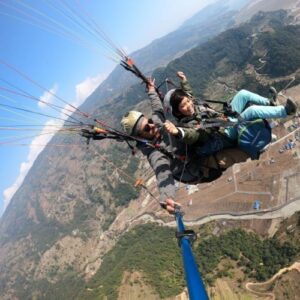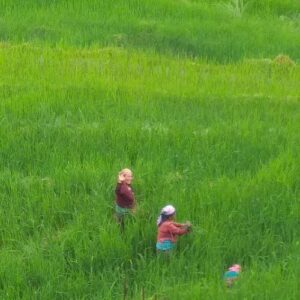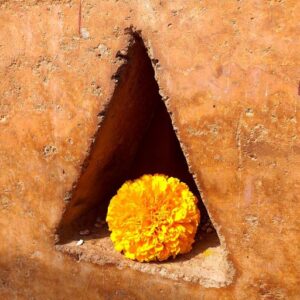

It seems to be that the first day of the year is always a good day for cake. And 6 days later. And 13 days before the new year. It is the annual cake triathlon peeking at the intersection of the close of one year and the beginning of another and there is cause for celebrating the birth of 2 boys and 1 man, or rather truly, the incredible experience of the birthing mother. It is a time when much excitement and laughter intermingle with whiffs of homemade treats in the kitchen. Interweaving cups of wheat dust, a gulp of sweetness, a couple of elliptical cracks, a smother of fat and a jolly bar of dark gooey matter whipped with pockets of air and pressured in a hot enclosure, happiness is magically created. When the finale occurs and the mould is detached, the ooh’s and aah’s punch a jolly tune. The cake presents itself like a gift whilst the crumbs that fall away are pre-giveaways, often giving the first hint of delight.
Little A and Mama I climb up to the cusp of wonder, breathing in the cold piercing air. The air, crisp and raw, overwhelms the lungs with aliveness. Life is good because of its simplicity, but simplicity is also a paradox depending on the fluctuations of the mind. The meaning of the word takes a new definition in a sparse place like Astam for there are only the towering mountains, the thick cold fog and the orchestration of buffaloes, cows and goats to keep one company. Stripped out from the familiar urban comforts like a stroll through the bookshop or the supermarket aisles or replacing a jar of moisturiser when the last smear runs out, at times, feels wearing and deprived. On the other hand, we could not have been in a better place during the lockdowns of a global pandemic for life lessons is paramount here. Life goes on no matter what the rest of the world imposes, doodles about or think. The simple life of survival offers no relief in the play of a wrecking virus. The land calls for work for there is work to be done and viruses to live with for we are a part of them, as they are, of us.
In the height of a harsh winter and beneath the surface story of the great natural beauty around, darkness sometimes takes over.
Winter reserves an imposing silence. Her entirety expresses a commanding solemnity and whips all into submissiveness. Her iciness brings shivers to the core, at once raging and nostalgic, blowing away all desire and despair. With every whip, she carves out the core until all that is left is hollow and empty. Then her piercing silence dissolves into laughter shaking the foundations of the mortals. This is what it feels like when reading Fyodor Dostoevsky in the peak of winter. And this is where my horizons of thought are widened, stretched, crumpled, crushed, trampled upon and ironed out.
Ploughing through the thick of The Brothers Karamazov for a solid 6 weeks in the fold of the dark hours, I am left dumbstruck by Dostoevsky’s magnanimous presence in the written word. My immediate impression is his capability of developing complex characters – describing their inner and outer condition in streams of monologue and raving dialogues that run into pages and pages. His acute observation of the nuances and his comprehension of humanity is like no other. He speaks of the modern human condition in multiple meanings and layers, of the conflict between philosophies of life and the profound psychological states of his characters. They are often mad, zealous, contradictory and by no means exemplary, but somehow, frightfully relatable, identifiable. This book is hard and gruelling. And punishing in its length. The narrative unfolds staggeringly slow, revealing landscapes drench in conflict and turmoil but thankfully saved by some relief of buffoonish comedy.
More than anything, it is a brick of a book that makes the reader think. Dostoevsky mercilessly puts a test to one’s patience on broad passages of battle between religion and atheism, social liberalism and hedonism, existentialism and spirituality. While he does not identify himself as an existentialist, his characters namely the unnamed protagonist from Notes from the Underground and Ivan Karamazov do reflect the roots of it. He maintains that the purpose of life is to act properly and by being authentic to yourself. Rationality alone can be deceiving especially if one is intelligent for humans have other faculties like emotion and motivation. He contends that in a highly rational society, our freedom would become distorted and irrationality will be the only method to exercise free will.
Disguised as a simple murder plot, these themes penetrate and gloat through The Brothers Karamazov like a sharp knife. He gives the power of paradoxes and contradictions and irony. He blankets the brightest of days and lights up the darkest of nights. I am not sure if reading his books in winter is a fitting time but the extremity of the season does put the reader in a frame of mind that helps one to relate with the hardships of the serfs during Tsarist Russia. The nails hit hard into the heart. He reworked his grand themes over and over again, attuning them in manifold depths, turning them inside out making sure nothing is left aside. He digs deep into the psyche and continues to dig even when the bottom is rock hard. By this, he unveils the layers of his characters like a thick onion until he penetrates into their tender core. It takes a brilliant mind to write so profoundly and Dostoevsky is undoubtedly the kind only to do so.
For now, the heart is quiet, just for a little while. I feel like I have reached another crossroad of a long journey, an arduous journey performed on the strength of a promise and which now, filled with gratuity sees a flicker of hope at the end. This winter has been hard, very hard. And the written word of Dostoevsky, at first, seemed to add weight to the darkness of it. Many a time on the threshold of giving up, I persevere, groping in the dark before dawn breaks. And just when the weight of it all seems to cave in, the mist mysteriously clears away to reveal the silhouette of the Himalaya. The sun breaks through and reminds us how we are powered by its beams without which, we are easily beaten into misery.
Morning anew, hope surfaces after a long absence. The master’s magnum opus concludes on the final page of 985. “Hurrah for Karamazov!” Dostoevsky takes a turn and fills the scene with hope and light for the younglings. “Oh young children, oh dear friends, do not be afraid of life! How good is life when one does some good…”Although the book finally comes to an end, his words linger and echo into the walls of my mind and heart. I am left in a mess, but a glorious blizzard it is.
The characters love and hate each other. They truly do, in a strange, vexed, crooked way. But they love each other nevertheless, despite their different poles in worldviews and beliefs. But what remains standing, pure and white amidst the chaotic snow blizzard is their support for each other’s right to life, love and happiness. Strangers held together only by blood ties, the brothers act as buttresses for each other and that is the best attribute a family can hold. Dostoevsky gives no easy answers but leaves much to contemplate on. For a man who survived Siberia for 4 years as a prisoner of labour and who was on the brink of being shot by a firing squad, he writes, “To love is to suffer and there can be no love otherwise.”
In our little bubble and a less troubling world here, love comes in all shapes, sizes and textures. There is always love of a kind in the kitchen. Strips of sesame paste interlaced in sweet braided dough begin to rise very slowly as dawn approaches. The dough is not happy in the cold. Mama I feels let down. Then, she catches a glimpse of the blurry ball of fire behind a blanket of clouds radiating a warm orange glow and it prompted her to work up a little steam in the wok to create a warmer environment for the dough to rise a second time. The warmth relaxes the dough beautifully and chemistry eventually comes into play. After an hour, the sweet pao swells in size and is ready to be steamed. 15 minutes tick away and the paos’ rise to great heights. As the cloth clad lid of the wok is lifted, the steam allows a peep of wavy fluffy buns.
Hurrah for the rising pao!





IiLing
19 Feb 2022Thrilled to hear from you Kavita! Thank you so much for the compliments, always nice to know there is a reader or two. Hope you and your family are well and thriving on the other side of the world.
Kavita Abraham
19 Feb 2022Iling!
What a stunning blog. I just discovered it a a result of scrolling through Facebook and feel like I have found a treasure trove. Thank you for your beautiful writing and sharing your journey.
Big hugs from England, kavita x